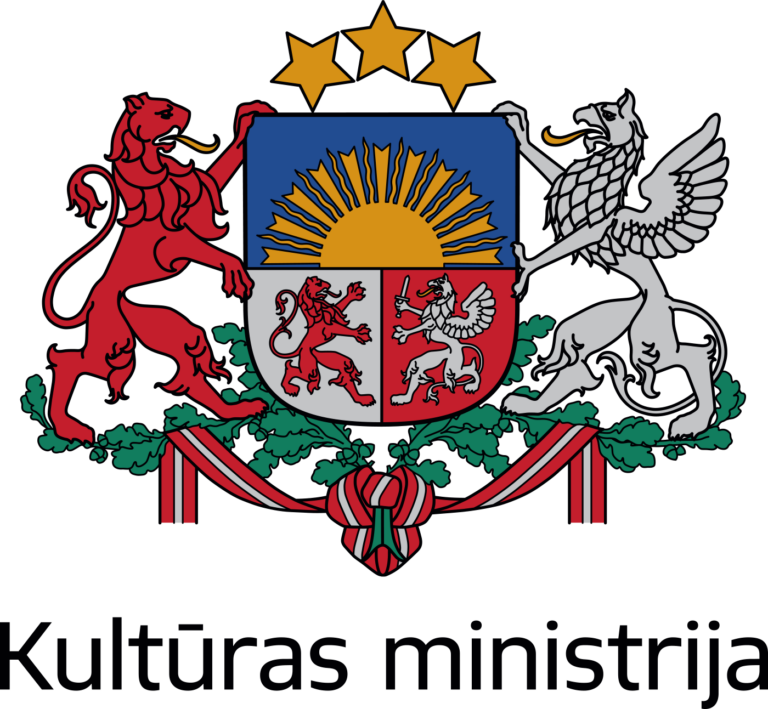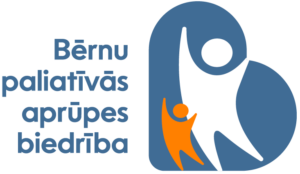Going their own way
It is a blessing when challenges in your life lead you to meet people who through their nature, strength and simplicity help you find out how to understand and overcome these challenges, how to coexist with them, and keep living a colourful life despite everything! The Children’s Palliative Care Society supports many families that can teach us about life in a much more profound way, and help us appreciate what is really important. One of such families lives in the Novaja village in Latgale, with Sanita and Arnolds Raginski bringing up their son Jānis (4.6 years old) and daughter Evelīna (8.6 years old). The little Jānis (or Jancītis, as the family lovingly call him) spent the first few months of his life in emergency care, and most of the first year and a half of his life, in hospital, and has had more than ten surgeries. He began walking at the age of 2, and still has many diagnoses that his family relentlessly works on treating, and he does get better. It is a big crisis for a family that gets a child with serious health problems: the family’s entire world changes, as it has to figure out how to help the child, and understand its relationships within itself, with relatives, friends and everyone else. In a way, this crisis is similar to what the entire humanity goes through now because of the pandemic. The true lesson for how to survive both of these situations is staying close to nature, work hard, maintain traditions, be self-reliant, accept challenges as a way towards a better life, accept bad situations without bitterness.
We arranged a WhatsApp meeting to take place in the late afternoon on 7 January 2021, to conduct an interview with the mother, Sanita, for the A12 magazine. It could be felt that they very much respected A12, and were looking forward to the upcoming conversation. During that day, Sanita called us, saying that her husband Arnolds would join us for the interview. So it’s early evening on 7 January, the very anticipated call comes, and the entire Raginskis family shows up on my screen like a warm glow of sunshine, with such joy coming primarily from little Jānis, but also from his parents and his sister Evelīna. I am in Riga, they, in Novaja village, and everything that I hear from them on an emotional level is unity, simplicity, warmth, acceptance, work, high spirit, faith, putting value in smaller things and events, learning, openness. Really, everything that every one of us is longing for.
Our conversation began with Arnolds’ meaningful words:
‘Everyone has their own life, and there’s no such thing as right or wrong. Sometimes other people try to dictate us how to live, while you should live the way you feel correct. When you remove what is redundant, you can understand your value, what you can invent and create yourself. Your own way is the easiest and the truest.’
What was your life like when you began to deal with the serious health problems that Jānis had?
Arnolds: The first year was very difficult, because it was just the two of us who faced this situation. Relatives and friends who we expected would support us, mostly distanced themselves from us. This was the time when we saw the values that each of us had individually and together, when we became convinced that we could only rely on ourselves. We also found out at that point that people you might consider strangers can offer sincere support and understanding. It really helps when people tell us ‘You’re doing really great!’
Sanita: For me as the mother, it was a huge shock. I spent time blaming myself for what had happened, often cried.
Arnolds: Such challenges either break families apart, or bring them together. A decisive factor each of these scenarios is where you seek validation and happiness for yourself: within yourself, or in the outside world. A situation when you have a seriously ill child at home, and you can’t even leave to visit your friends, let alone travel somewhere, or enjoy your life, can be a harsh test if you only used external sources of joy to build your life prior to that.
What has this situation given you personally and as a family?
Sanita: We have certainly become morally, emotionally and psychologically stronger. In our daughter this brought about the understanding that there are different children. I think, it will be beneficial to her in the future, as way to temper her and create empathy. Evelīna even helps her brother set up the gastrostoma and suction off the saliva.
Arnolds: This situation has helped us understand who each of us is, has given us answers about how much we can do for ourselves. And I urge other people to ask themselves this question: who are you? How much can you do for yourself? This situation has also convinced us even more that as parents, we feel our child the best, and that we often feel what approach to treatment is necessary.
What is the source of strength in your family?
Sanita: Nature is there, for sure, the fact that we’re there for each other, going to the sauna three or four times a week together, the sense of being at home. And the fact that Jānis has a sister. Evelīna is like a teacher for Jānis: he has learned a lot with her involvement and genuine interest.
When it comes to going your own way it is also important to devote time to yourself. Sanita, Arnolds, what what is your personal calling, where do you find joy?
Sanita: For me such a joyful and solitary activity begins in February, with the season for sowing flowers. This is my calling. I can observe the way nature works, from a seed to a plant. I am thankful to my husband who helps me with the garden. I enjoy every blooming flower and its aroma. I also experience myself through my children, teaching them the virtue of work, and how to properly treat our goats, chickens, cats and dogs.
Arnolds: I enjoy tinkering, putting stuff together, making weird and wonderful things. I am convinced that there are no things that you can’t make. Doing this calms me down, sometimes serving as an emotional outlet. I made our incubator myself: it was not just about making the box, but also finding a way to maintain the right humidity and temperature. And now it’s been two seasons that chickens and ducks have been hatching in our own incubator.
What are your family’s traditions?
Sanita: Our family has three holidays that we celebrate together: Christmas, Easter and Jāņi. We eat kūča for Christmas: Arnolds symbolically divides it among everyone, which represents the sharing of responsibilities in the family. For Easter we put on the table what was blessed at the church, while for Jāņi we decorate the house and weave wreaths. We also only speak Latgalian at home. We are Latgalians in our heart and soul, and that how we bring our children up, too.
Arnolds: It’s important for a family to have traditions and holidays that bring the family together, create a sense of belonging, responsibility, and serve as an opportunity to celebrate. If you eat herring and potatoes every day, if even on a holiday you only have potatoes and herring, at least present it in a more festive way, decorate it. We are Catholics, and on these holidays, it’s tradition for all of our family to go to church, as a way to strengthen our familial connections.
What is special about the place where you live?
Sanita: In one word: simplicity, in people, in perceptions, in our work. There used to be this tradition: you could see that your neighbour isn’t at home, because the door is kept closed with just a broom, but not locked. There’s also much hospitality. There is an unwritten law that you can’t say no to someone asking for help. In the country, Latgalians will give you food to eat and a place to sleep.
Arnolds: On the one hand, we all here live and take responsibility for our own life, but at the same time, there is a mutual connection, like a symbiosis among the neighbours. Everyone helps with what they’ve got: some can give you milk, others, lend you a tractor.
How has your daily life changed since the beginning of the pandemic?
Sanita: Our life hasn’t changed too much, because you can really say that for us, it’s been a crisis since Jānis’ birth. We did everything ourselves before the crisis, producing our own meat, vegetables, all that we need, being there for each other, and finding joy in smaller things and events. I would certainly like to thank Jānis for changing us, for preparing us, in a way.
What is your biggest dream?
Sanita: My biggest dream is that Jānis can eat and breathe on his own, that the health problems go away. Jānis being able to pick up a juicy strawberry and eat it is something I dream of every day and night!
What do you wish for other people?
Arnolds: Don’t be afraid of challenges, don’t run away from them: every situation has a solution. Don’t be rash looking for solution: a solution will find its way to those who look for one. People should understand their own nature: they should know what they know and what they need. Do not give in to globalisation and its consequences: make and create more yourself. Most importantly, take responsibility, which is the strength of every person. We see that many who find themselves in our situation don’t even think of having another child, because they are afraid. We see this as shying away from responsibility. Fear of responsibility guides us in many life situations. Never give up in the face of challenges. Every problem comes to an end, and something else begins. Remember: even if it’s hard now, it’s not going to be this way forever.
At the end of our conversation I told them that their story could serve as a manual for every person, and to that Arnolds said: ‘We haven’t really said that you should live the way we do. I hope everyone takes away from this what they really need!’ Sanita warmly added: ‘Come visit us: there is room, and we will be happy to treat you to something delicious!’ Little Jānis and cute Evelīna cheerfully waved as we ended the conversation. I sincerely look forward to meeting the Raginskis family in person.





